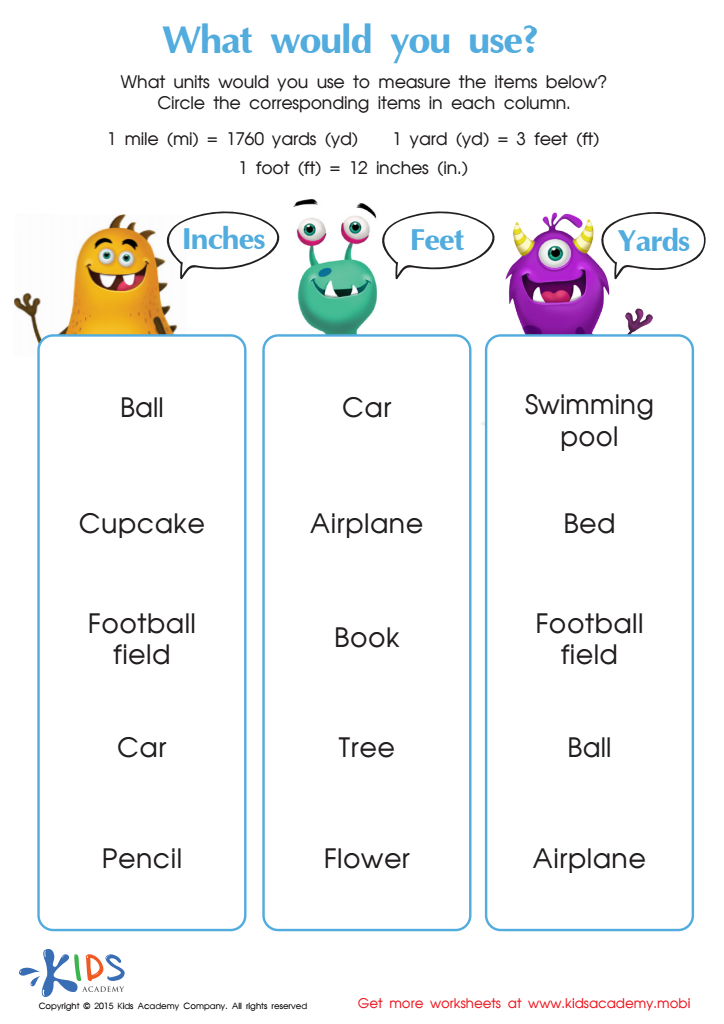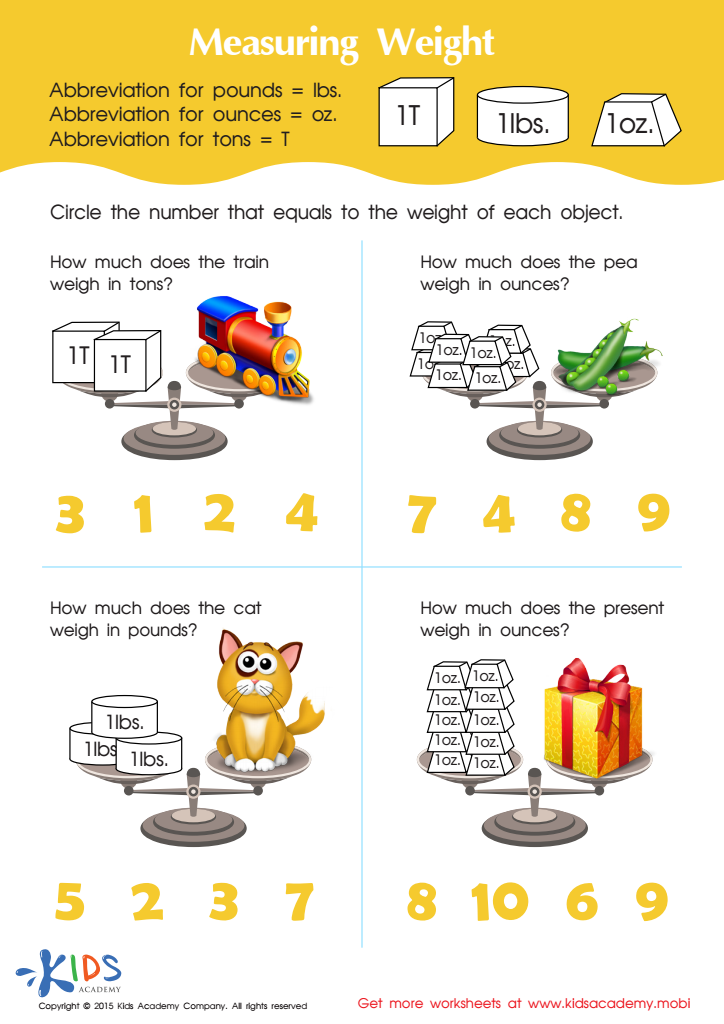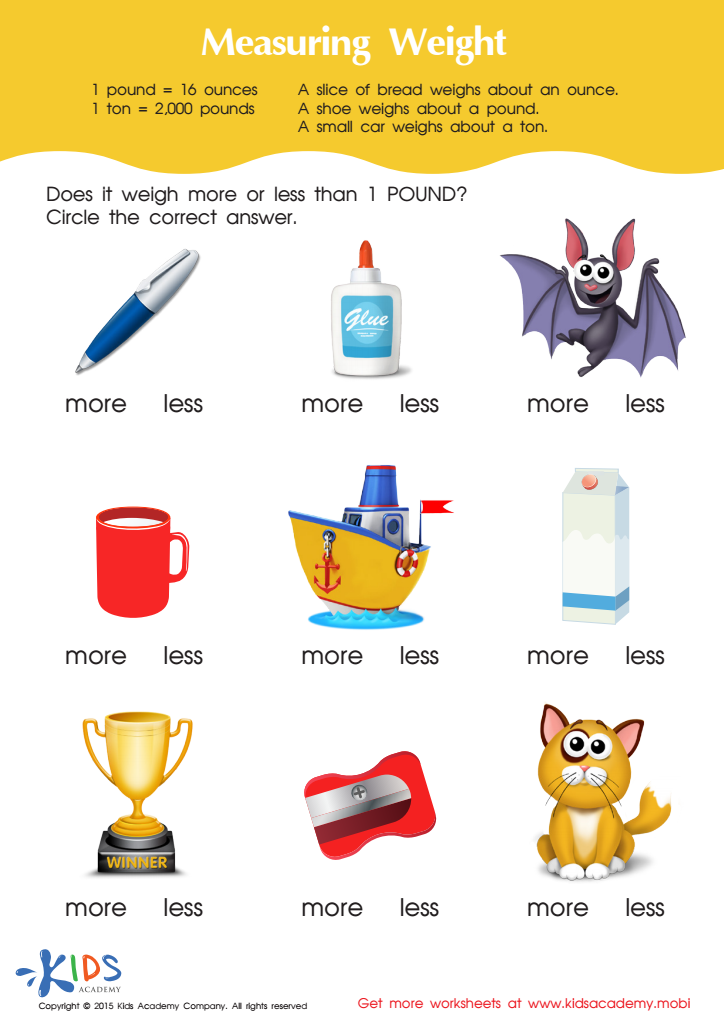Practical math application Measurement Worksheets for Ages 3-6
3 filtered results
-
From - To
Introduce your young learners to the exciting world of practical math with our Measurement Worksheets designed specifically for ages 3-6. These engaging and educational worksheets offer fun activities to help children understand and apply basic measurement concepts like length, weight, and volume in everyday scenarios. Through interactive exercises, kids will enhance their problem-solving skills while building a solid foundation for future math success. Featuring colorful illustrations and simple instructions, our worksheets make learning math enjoyable and accessible for preschoolers and kindergarteners. Download today and watch your child’s confidence grow as they explore the practical applications of math!


Learning about measuring objects in inches, feet and yards Worksheet


Measuring Weight in Ounces, Pounds and Tons Worksheet


Measuring weight in pounds Worksheet
Introducing practical math application, particularly measurement, to children aged 3-6 is beneficial because it helps lay the foundation for essential life skills, cognitive development, and fosters a positive attitude toward learning. At this developmental stage, young children are naturally curious and enjoy exploring the world around them. Engaging with measurement concepts like size, length, weight, and volume through playful activities and everyday routines can significantly enhance their understanding.
Measurement activities help develop fine motor skills as children use rulers, measuring cups, or balance scales. Such activities promote problem-solving abilities and critical thinking. For instance, comparing the lengths of objects or determining the amount of ingredients needed in a simple recipe makes abstract math concepts more concrete and relatable.
Regular interaction with measurement during early years supports the comprehension of mathematical vocabulary and concepts such as more, less, equal, tall, short, heavy, and light. Early familiarity with these notions provides a smoother transition when more complex math topics are introduced later in school. Additionally, children who experience success and fun in early math activities are more likely to develop confidence and a lifelong interest in mathematics. Therefore, parents and teachers should seize everyday opportunities for hands-on learning about measurement to nurture a child’s holistic development and academic foundation.
 Assign to My Students
Assign to My Students





















